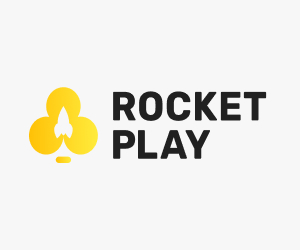The 2018 U.S. Supreme Court decision was a pivotal moment in sports betting, granting individual states the power to regulate it. For NASCAR, the legal shift became a fruitful chance to enlarge the number of its fans, a strategy that is showing positive results.
Joe Solosky, the NASCAR Director of Sports Betting has noted a stunning rapid increase in wagering engagement around NASCAR events. Apparently, the growth of sports betting has surpassed other sports by far.
Notable statistics on this trend show a 73% increase in bets on the Daytona 500 during the recent half-year, and a substantial 51.5% rise in total wagers on NASCAR in 2022 compared to 2021. They also show a 4% bump in NASCAR television viewership and an 11% growth in fans attending races.
Solosky connects this betting growth to a public understanding and acknowledgment of the sport by the general public. While betting action is centered on the Cup championship during these events, athletes of the Xfinity and Craftsman Truck series also tend to noticeably generate interest among bettors. Data from the bets on last month’s Speedweeks reveal that the Daytona 500 was the most popular of the three races. Bets placed on it represent almost 85% of all bets whereas the Xfinity Series got around 10%, and the Craftsman Truck Series race only got 5%.
NASCAR, A Low Volume Bet Sport
Solosky holds the view that given its status as a very low-volume bet sport, the NASCAR betting industry is supposed to have a growth momentum that outruns that of other sports. Providing context, Solosky opined that about 42% of the US wagers are on football and any possibility of the sport having a 20% increment is huge.
NASCAR enjoyed its largest exploitation of the betting market and was near the top, just before the U.S. Supreme Court ruling. He described a transition from an uncontested market globally to a strong player position after the legalization of sports betting. In contrast with other seasoned leagues that have established betting culture, NASCAR started from level zero with Betting in 2018.
NASCAR’s negative view of gambling during the 1960s was best highlighted in the monumental effort to prohibit organized betting by its founder Bill France Sr. This is in stunning contrast to the environment of post-2018 when the Supreme Court lifted the ban and legalized sports gambling. This targeted turn came as a breath of fresh air to NASCAR and allowed for a wider betting audience to comfortably start betting on their favorite racing teams, thus marking a transition from a seek-first-withdraw stance.
Today, Each State Regulates Gambling
Each state has its own way of regulating sports betting, as shown in an example provided by Sosolosky where Native American tribes are allowed to play sports betting only within their casinos. However, states such as Tennessee only allow bets through online gambling platforms, which are legally regulated by the government with all sportsbooks paying fees for licensing. They are also required to become certified by certain technological standards.
Due to national regulatory disparities, some states cap the number of allowed sportsbooks, whereas others, such as in Tennessee, do not impose such limits. For online sports bettors to participate in their platform, they must supply their personal details such as social security numbers and passport photos. With the legislature of the states always looking at possible revisions for gambling laws, the present legal framework has 23 states and the District of Columbia endorsing online betting, while 5 states have confined gambling to in-person sports betting and 4 states are waiting for new laws to be passed.
NASCAR managed to cross a milestone in September 2020 by hedging into sports gambling through a leading collaboration with the American Gaming Association. NASCAR made agreements this year with major players in the industry including BetMGM, WynnBET, and Penn Entertainment. As opposed to getting the percentage returns from wagers directly, NASCAR follows the pattern of putting forth collaborative work in partnership with data providers. The same model is utilized by major leagues such as NFL, NBA, MLB, and NHL where the league provides data to affiliated sportsbooks which is a strategy adopted by these sports leagues.
Sportsbooks Sponsorship Relationship
In particular, Solosky puts an emphasis on the interdependence relations between sportsbooks and sports leagues. These relationships usually revolve around a rather narrow strategy of focusing on marketing and sponsorship agreements, that often take place during the process of annual negotiations.
In establishing this type of arrangement, bookmakers are obligated to pay licenses to NASCAR as return for the right to work with the NASCAR domain, including banners and logos in the racing areas, website promotions, and social media collaborations, which eventually enable the sponsor to display the sportsbook logo.
Such a “mutually beneficial” agreement means the sportsbook will get the NASCAR stamp of approval and in turn the NASCAR will put the logo of the sportsbook on racers’ suits. At the end of every month, NASCAR gets detailed reports from all the hosting sportsbook partners containing all the info about betting activity concerning any event.
NASCAR chooses exclusive fixed odds in order to avoid offering interactive betting systems like parimutuel which depicts the physical in-person betting facilities for racing tracks that are familiar in the context of horse racing. Instead of mobbing betting kiosks on NASCAR circuits, fans can simply place their bets using their mobile devices from anywhere within permitted locations and enable wagering to conclude as the green flag signals the beginning of the race.
NASCAR betting has seen its landscape change to concentrating predominantly on predicting the race winners while in parallel fast growth of betting the top finishers and others is still emerging. Wagers like car numbers, laps led or even a gifted bet like Trifecta or Quinella are found only in select sportsbooks.
In order to maintain the integrity of the sport over and above the widening range of legalized sports gambling, NASCAR cautions its participants to avoid getting involved in the activity as prescribed through stringent policies that are contained in its rule book. These are aimed at eradicating gambling-related issues among the participants and the resultant penalties that may range from fines to losing memberships.
Solosky’s offensive approach consists of educating drivers and team members on responsible gambling manners through seminars, and emphasizing that participating in NASCAR gambling activities may damage the company’s name.
In the period of time that comes before events, Sportradar Integrity Services, along with other entities, assume responsibility for displaying the principles of non-supporter engagement to NASCAR workers in an irrefutable manner and emphasize that none of them should take part in any activities that could be linked to a race. As a preventive measure, all NASCAR members including pit crew members and the team’s associates, are required to undergo online training to cover NASCAR betting policy that determines how the broad base of members should respond accordingly.









